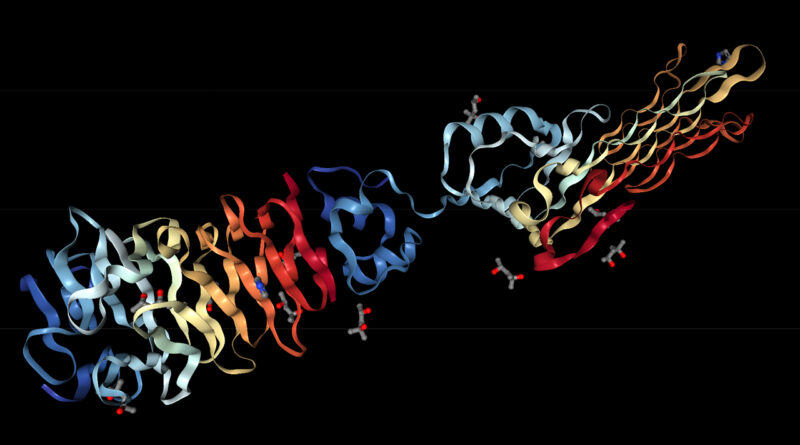Protein Structure Database Created by AI
[Please note that this page contains affiliate links. If you choose to purchase after clicking a link, I may receive a commission at no extra cost to you.]
The sister company to Google, DeepMind, has allowed the world access to an enormous protein structure database. This software has the potential to transform scientific research.
Ewan Birney, CEO of European Molecular Biology Laboratory, who came together with DeepMind on the database, said that it might be the most critical data set since the mapping of the Human Genome.
Protein Structure Database Created by AI
A protein structure is essential to how living organisms function, including humans. Everything that we are made of and our cells do is done by our proteins.
Perhaps the most critical contribution artificial intelligence has made in advancing scientific knowledge.
A protein is pieced together in long strings made up of thousands of chemical compounds named amino acids, and the way the ribbons fold in on themselves determines the protein’s function.
As soon as researchers know the 3D structure of the protein, they can determine how the protein interacts with everything around it and start figuring out ways they can make new drugs, design new energy systems, study diseases, and much more.
One challenge is that although researchers can see protein structure, it is not as easy as the standard method. For example, the AI method includes x-ray crystallography and is very complicated and expensive to use.
DeepMind Produced AlphaFold
Figuring out a single protein make-up can take weeks or even months, and so far, after years of work, scientists have only decrypted 17% of the human body’s 20,000 proteins, which is called the proteome.
To figure out the protein folding issue, DeepMind produced AlphaFold, artificial intelligence that predicts a protein structure based on its amino acids with an extraordinary level of accuracy within a day or two.
The company has now announced that it is creating a free, open-source online protein structure database of AI predictions.
This database contains the structure predictions for all the 20,000 proteins found in the human body.
In addition, it includes 330,000 other proteins found in 20 organisms often found in scientific research, including fruit flies, mice, and zebrafish.
There is also a lot more in store soon: DeepMind hopes to release at least 100 million more predictions for protein structures over the next couple of months. Thus, the database will soon hold all the knowledge of the world’s proteins.
“It is the idea that this represents the vital impact AI has made to pushing science knowledge forward and is perfect for the types of benefits artificial intelligence gives back to society,” says Demis Hassabis, the founder of DeepMind and CEO.



Great article!